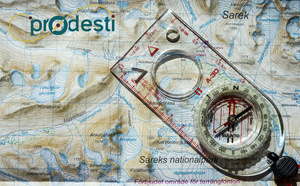Findings from a new report compiled by the NFIB reveal the scale of the crime and expose common tactics used by fraudsters who stole an estimated £7million from unsuspecting holidaymakers and other travellers in 2013.
The 2014 report reveals that during a 12 month period over 4500 cases of holiday booking fraud were reported. The most common types relate to:
Holiday accommodation – according to the report almost a third (30%) of holiday fraud victims in 2013 were scammed by the fraudulent advertisement of holiday villas and apartments, with some arriving at their destination to discover they had nowhere to stay.
Airline tickets – where a customer believes they are booking a flight and receives a fake ticket or pays for a ticket that never turns up.
This is the second most common type of booking fraud, accounting for 21% of holiday booking fraud reported to the police in 2013. Average losses are more than £1000 per victim, with flights to West Africa a particular target.
Package holidays – particularly group, sports and religious packages. The report highlights the Hajj pilgrimage to Saudi Arabia and major sporting events such as the Ryder Cup as particular targets for fraudsters.
These types of package holiday fraud accounted for 17% of reports in 2013. In 2014, packages for the Ryder Cup and Commonwealth Games in Scotland, and travel to the World Cup in Brazil, may prove a target.
The 2014 report reveals that during a 12 month period over 4500 cases of holiday booking fraud were reported. The most common types relate to:
Holiday accommodation – according to the report almost a third (30%) of holiday fraud victims in 2013 were scammed by the fraudulent advertisement of holiday villas and apartments, with some arriving at their destination to discover they had nowhere to stay.
Airline tickets – where a customer believes they are booking a flight and receives a fake ticket or pays for a ticket that never turns up.
This is the second most common type of booking fraud, accounting for 21% of holiday booking fraud reported to the police in 2013. Average losses are more than £1000 per victim, with flights to West Africa a particular target.
Package holidays – particularly group, sports and religious packages. The report highlights the Hajj pilgrimage to Saudi Arabia and major sporting events such as the Ryder Cup as particular targets for fraudsters.
These types of package holiday fraud accounted for 17% of reports in 2013. In 2014, packages for the Ryder Cup and Commonwealth Games in Scotland, and travel to the World Cup in Brazil, may prove a target.
to avoid becoming a victim of holiday booking fraud
A 2013 *YouGov poll for ABTA revealed that one in ten consumers (9%) do nothing to research their travel company, such as checking if it is a member of a trade association such as ABTA (which has a code of conduct in place to protect consumers), asking friends and family for recommendations, or running a web search.
ABTA, the NFIB and Get Safe Online have published advice on how to avoid becoming a victim of holiday booking fraud – and on how victims should go about reporting it, including the top tips below:
Do your research: Don’t just rely on one review, do a thorough online search to ensure the company’s credentials. If a company is defrauding people there is a good chance that consumers will post details of their experiences, and warnings about the company, online
Look for the logo : Check whether the company is a member of a recognised trade body such as ABTA. You can verify membership of ABTA online
Stay safe online: Check the web address is legitimate and has not been altered by slight changes to a domain name – such as going from .co.uk to .org
Pay safe: Never pay directly into an owner's bank account. Paying by direct bank transfer is like paying by cash – the money cannot be traced and is not refundable. Where possible, pay by credit card, (or a debit card that offers protection)
Check paperwork: You should study receipts, invoices and terms and conditions, and beware of any companies that don’t provide any at all
Use your instincts: If something sounds too good to be true, it probably is
Report it – victims should contact Action Fraud on 0300 123 2040 or via www.actionfraud.police.uk. For a full list of tips to avoid becoming a victim of fraud please see: www.abta.com/fraud
ABTA, the NFIB and Get Safe Online have published advice on how to avoid becoming a victim of holiday booking fraud – and on how victims should go about reporting it, including the top tips below:
Do your research: Don’t just rely on one review, do a thorough online search to ensure the company’s credentials. If a company is defrauding people there is a good chance that consumers will post details of their experiences, and warnings about the company, online
Look for the logo : Check whether the company is a member of a recognised trade body such as ABTA. You can verify membership of ABTA online
Stay safe online: Check the web address is legitimate and has not been altered by slight changes to a domain name – such as going from .co.uk to .org
Pay safe: Never pay directly into an owner's bank account. Paying by direct bank transfer is like paying by cash – the money cannot be traced and is not refundable. Where possible, pay by credit card, (or a debit card that offers protection)
Check paperwork: You should study receipts, invoices and terms and conditions, and beware of any companies that don’t provide any at all
Use your instincts: If something sounds too good to be true, it probably is
Report it – victims should contact Action Fraud on 0300 123 2040 or via www.actionfraud.police.uk. For a full list of tips to avoid becoming a victim of fraud please see: www.abta.com/fraud


























![Tourisme : où sont passés les Chinois ? [ABO] Tourisme : où sont passés les Chinois ? [ABO]](https://www.tourmag.com/photo/art/large_16_9/87929923-62307593.jpg?v=1744721842)















